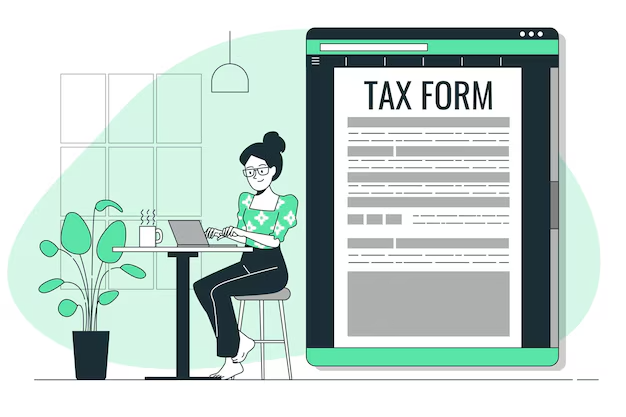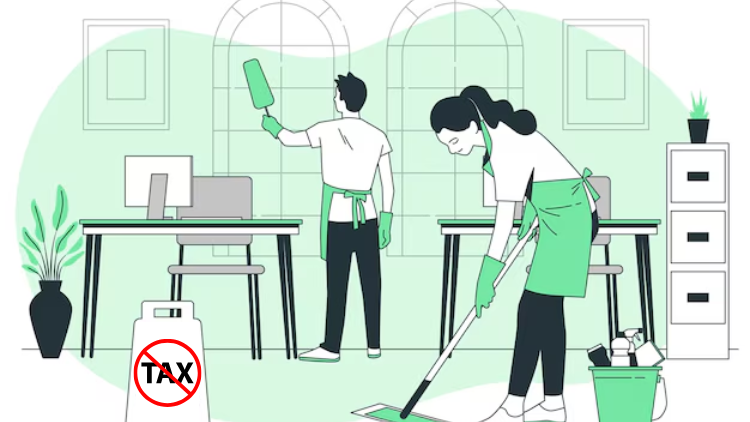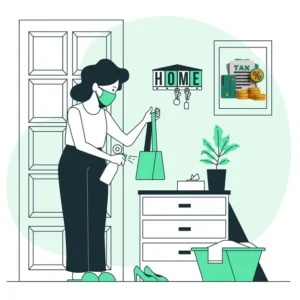Introduction
As a Canadian professional cleaning company, we understand that maintaining a clean home in Canada is essential for health, and comfort. In a city like Abbotsford, busy homeowners often switch to professional maid services in Abbotsford to keep their home clean and inviting. But when tax season arrives, a common question arises in everyone’s mind: Can house cleaning expenses be claimed on taxes in Canada?
The answer isn’t a simple yes or no. While most personal cleaning expenses are not tax-deductible, there are specific scenarios where cleaning services can be claimed, reducing your taxable income. Whether you’re a homeowner, landlord, self-employed person, or someone with medical needs, understanding the rules and criteria set can help you make informed and financially beneficial decisions.
In this detailed guide, we’ll explore when and how you can claim house cleaning services on your taxes, provide real-life examples, and offer actionable tax-saving tips. If you’re ready to clean up your finances while cleaning your home, keep reading.
Understanding Tax Deductions in Canada

What is a Tax Deduction?
A tax deduction is an amount you can subtract from your total income to reduce the amount of income that is taxed by the government. In simple terms, it helps lower your taxable income, which means you may pay less income tax.
For example, if you made $40,000 in a year and had $5,000 in eligible tax deductions, you would only be taxed on $35,000 instead of the full amount.
Common Tax Deductions in Canada Include:
- Business expenses (if you’re self-employed)
- Medical expenses
- Charitable donations
- Childcare costs
- Home office expenses
To claim deductions, the expense must be reasonable, necessary, and properly documented—like with receipts or invoices.
Who Can Claim House Cleaning Taxes?
House cleaning may be tax-deductible for:
1. Self-Employed Individuals and Home-Based Businesses
If you run a business from home, the portion of your home used for work can qualify for home office deductions. This includes cleaning expenses for that portion.
Key Criteria:
- Space must be your principal place of business
- Used regularly and exclusively for business
If your home office takes up 20% of your home, you can deduct 20% of your annual cleaning expenses.
2. Landlords and Rental Property Owners
Cleaning services used for maintaining or preparing a rental property are considered a valid business expense.
When it Applies:
- Cleaning between tenants
- Regular maintenance of rental units or shared spaces
Tip: Keep invoices and service records tied to your rental income reports.
3. Medical Necessity
If cleaning is needed due to a medical condition, you may qualify for a medical expense deduction. This must be recommended by a licensed healthcare provider.
What You Need:
- Doctor’s note or prescription
- Service invoices
- Proof of payment
Only the portion of expenses directly linked to your medical need is deductible.
4. Accessibility and Disability Support
If you’re making your home more accessible for someone with disabilities, the Home Accessibility Tax Credit (HATC) may apply. This includes maintenance that supports accessibility, such as cleaning.
Conditions:
- Home modifications for seniors or people with disabilities
- Services must contribute to a safer, more accessible living space
Want to know about the average cost of hiring professional cleaning services in Canada? Find out how much professional cleaning costs here.
What Kind of Cleaning Services Can Be Claimed?
When it comes to tax deductions in Canada, not all cleaning services are treated equally. Depending on your situation — whether it’s for a home office, rental property, medical needs, or accessibility purposes — certain types of cleaning services may be eligible for tax deductions.
Here’s a detailed look:
1. Regular Cleaning
- Examples:
Dusting, vacuuming, mopping, general surface cleaning. - When It’s Eligible:
- If used exclusively for maintaining a home office space.
- For routine maintenance of rental properties.
- If used exclusively for maintaining a home office space.
Tip: Only the portion related to the business or rental use can be deducted.
And if you’re living in Surrey, knowing the cost of a maid in Surrey will help in choosing the right service for you.
2. Deep Cleaning
- Examples:
Scrubbing baseboards, cleaning behind appliances, washing blinds. - When It’s Eligible:
- During move-in or move-out cleaning for a rental property.
- When needed for disability-related modifications or medical conditions.
- During move-in or move-out cleaning for a rental property.
Tip: Keep deep cleaning invoices separate if you’re claiming for accessibility or medical needs.
3. Specialized Cleaning Services
- Examples:
Carpet cleaning, window washing, post-renovation cleanup. - When It’s Eligible:
- If required to maintain a rental property.
- If related to creating or maintaining a safe, accessible living space (qualifies under the Home Accessibility Tax Credit).
- If required to maintain a rental property.
Tip: Specialized services must be clearly tied to income-earning properties or medical/accessibility needs.
4. Move-In/Move-Out Cleaning
- Examples:
Cleaning after tenants move out or preparing a space for new tenants. Then you need to look for move out cleanings. - When It’s Eligible:
- As part of rental property turnover.
- When relocating a home-based business to a new property.
- As part of rental property turnover.
Tip: Save both the cleaning invoice and proof of the rental or business-related move.
Cleaning Services That Cannot Be Claimed

- Routine cleaning of your personal residence (not linked to a home office, rental, or medical necessity).
- Cleaning your cottage or vacation home unless it’s rented out for income.
- Casual cleaning for non-medical reasons (spring cleaning, etc.).
Tip: Whether you’re investing in ongoing cleanings or a deep clean for tax purposes, it pays to know what to expect. Learn more about professional home deep cleaning costs and hiring tips.
Documentation You’ll Need
To accept your deduction claims, your records must be complete and accurate.
Keep the Following:
To accept your house cleaning deduction claims, it’s essential that your records are thorough, accurate, and well-organized. Without proper documentation, your deduction claims could be disallowed, leading to potential penalties or loss of refund. Therefore, it’s vital to keep track of every relevant detail related to your cleaning expenses.
Here’s an overview of the specific documents you’ll need to support your claims and how they can help you back up your deductions:
1. Invoices and Receipts from Cleaning Companies
Whenever you hire a cleaning company, ensure you receive an official invoice or receipt for the services rendered. The invoice should include:
- The name of the cleaning company.
- The date of the cleaning service.
- A description of what services were performed (e.g., deep cleaning, general cleaning, etc.).
- The total amount charged.
2. Proof of Payment (e.g., Bank Statements, Canceled Cheques)
In addition to invoices, you must provide proof that you actually paid for the house cleaning services. This can be in the form of
- Bank or credit card statements that show the transaction.
- Canceled cheques or copies of payments made by cheque.
- E-transfer receipts or PayPal payment records, if you paid via digital platforms.
3. Medical Documents (for Medically Required Cleaning)
If you are claiming house cleaning expenses due to a medical necessity, such as a condition like asthma, allergies, or a disability, you will need supporting medical documents. These documents could include:
- A letter from a healthcare provider explaining that cleaning is medically necessary due to a specific condition.
- Prescriptions or medical notes that confirm the need for specialized cleaning to maintain a healthy living environment (e.g., removing allergens or preventing infection).
4. Usage Logs for Home Office or Rental Properties
If you’re claiming house cleaning services for business purposes (e.g., for a home office) or as part of maintaining rental properties, you need to document the usage of the space. Keep records such as:
- Home office usage logs: If you have a designated office space in your home used exclusively for business, record the size of that space in relation to your total home. For example, if your office occupies 10% of your home’s total square footage, you may claim 10% of the cleaning cost.
- Rental property logs: If you’re cleaning a rental property, maintain a detailed log of when and why the property was cleaned (e.g., for new tenants, after maintenance work, or routine upkeep). Documenting the dates and services provided will strengthen your claim for rental property cleaning expenses.
5. Detailed Work Logs for Dependent or Medical Care
If you are claiming house cleaning for medical or dependent care (e.g., for elderly parents or a disabled family member), it’s helpful to maintain a log of the care being provided. This could include:
- Documentation that the cleaning is necessary for the care of a dependent: Keep records of when the cleaning services were performed and how they support the care of the dependent.
- Dates of service and detailed invoices: Similar to home office or rental property deductions, this will help establish a direct link between the cleaning and the dependent’s care.
When it comes to claiming house cleaning services on your taxes in Canada, the key is to maintain meticulous records. Whether you’re claiming cleaning costs related to your home office, rental property, medical necessity, or dependent care, having proper documentation will ensure that your claim is valid. Keep invoices, proof of payment, medical documents, and usage logs handy to substantiate your claims.
While house cleaning services aren’t typically deductible as a personal expense, there are several situations where they can be claimed, and keeping thorough documentation will give you the best chance of receiving those deductions. If you’re unsure about how to proceed, or if your situation is complicated, don’t hesitate to consult with a tax professional to ensure you’re following the rules correctly.
How to Organize Your Documents
Tracking and organizing your receipts and documents for tax purposes can be a tedious task, but it’s much easier when you use digital tools. Software like QuickBooks or Wave helps you.
- Store receipts digitally: Take photos of your cleaning service invoices and store them electronically. This eliminates the risk of losing physical receipts and helps you stay organized.
- Track payments: By connecting your bank accounts or credit cards to the software, it automatically tracks your payments and organizes them for easier access during tax season.
- Generate financial reports: Use these tools to create easy-to-read financial reports that summarize your expenses for the year, helping you identify potential deductions related to cleaning services.
These tools can help you keep your documents and receipts organized, making it much easier when tax season rolls around. They also help you stay on top of your expenses year-round, allowing you to be proactive about your tax deductions and avoid last-minute scrambling.
Tax-Saving Tips for House Cleaners and Contractors
If you’re a self-employed cleaner or run a cleaning business, you can also save on taxes with these tips:
Claim All Business Expenses
- Cleaning products
- Tools and equipment
- Uniforms
- Training or certifications
Deduct Mileage
Track business-related vehicle use. You can claim:
- Gas
- Repairs
- Insurance
Use mileage-tracking apps like TripLog or MileIQ.
Hire Your Kids Legally
If your children help with your cleaning business, you can pay them a reasonable wage and deduct it as a business expense. Make sure the work is documented.
Home Office Deductions
Even for cleaners who work outside the home, if you handle bookings, inventory, and client meetings at home, a portion of household costs may be deductible.
How to Claim House Cleaning on Your Tax Return
Step-by-Step:
- Assess eligibility based on your situation (business, medical, rental, accessibility)
- Gather all documentation including receipts and medical notes
- Calculate the deductible portion (e.g., home office use ratio)
- File your return using the appropriate forms (T2125 for self-employed, T777 for employment expenses)
- Keep records for at least 6 years in case of audit
Conclusion
Claiming house cleaning on your Canadian taxes is possible, but only in certain situations. Whether you’re a small business owner, a landlord, or someone with health-related needs, knowing the rules can help you claim legitimate deductions and save money.
Always keep detailed records, check the liable website for updates, and speak with a tax professional if you’re unsure. With the right approach, house cleaning can contribute to both a tidy home and a cleaner tax return.
Looking for reliable professional cleaning services that meet all the criteria? Contact us and book a professional cleaning with us today.
Common FAQs
Is all house cleaning tax-deductible in Canada?
No, only under certain conditions like medical necessity, rental property maintenance, home office use, or disability support.
Can I claim cleaning services if I work from home?
Yes, if the space is used exclusively and regularly for business.
What if I just clean my own house?
Routine personal cleaning expenses are not deductible.
Can landlords deduct cleaning between tenants?
Yes, cleaning is a valid part of rental property upkeep.
How long should I keep my receipts?
Documentation is to be kept for at least six years after the tax year.
